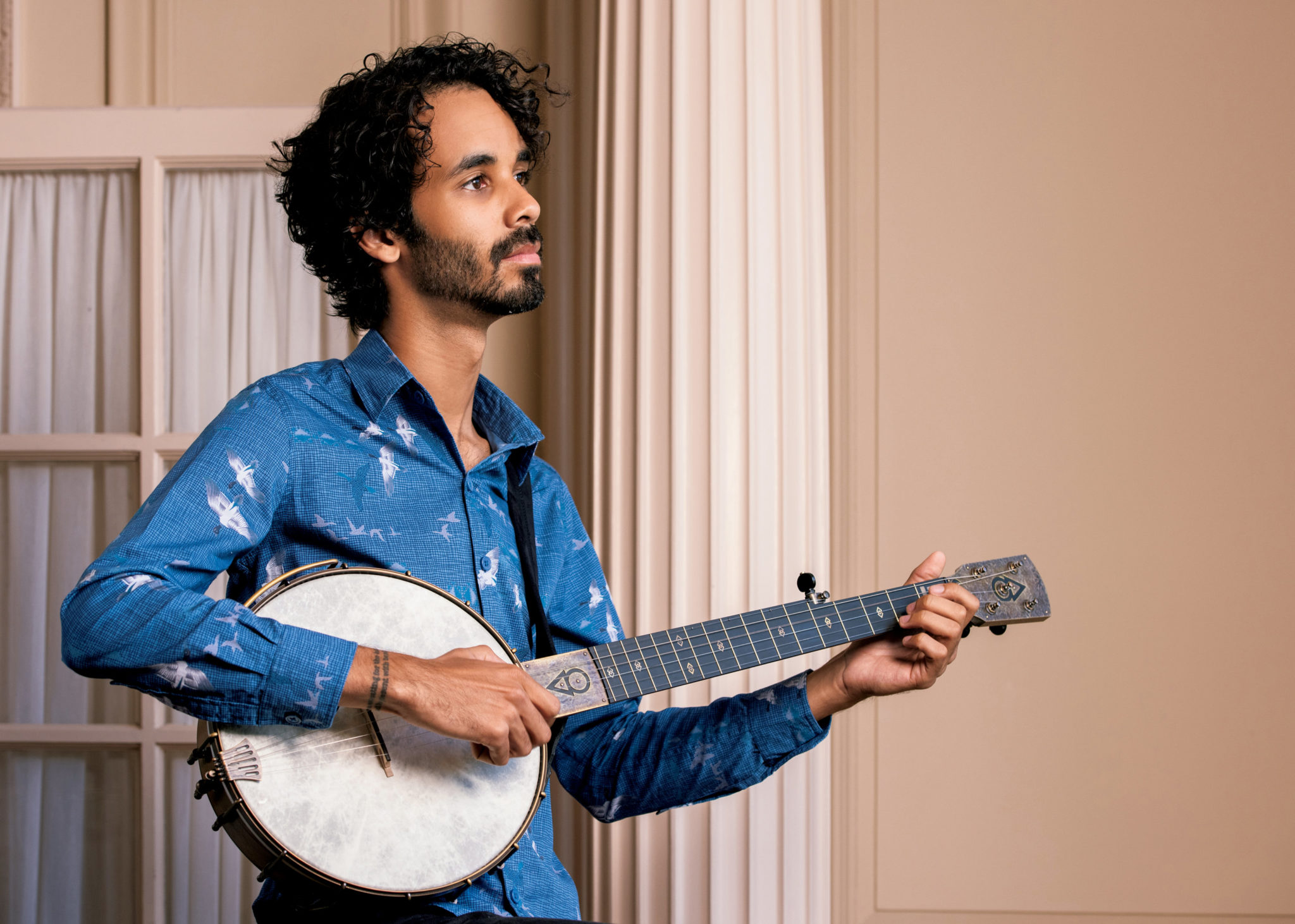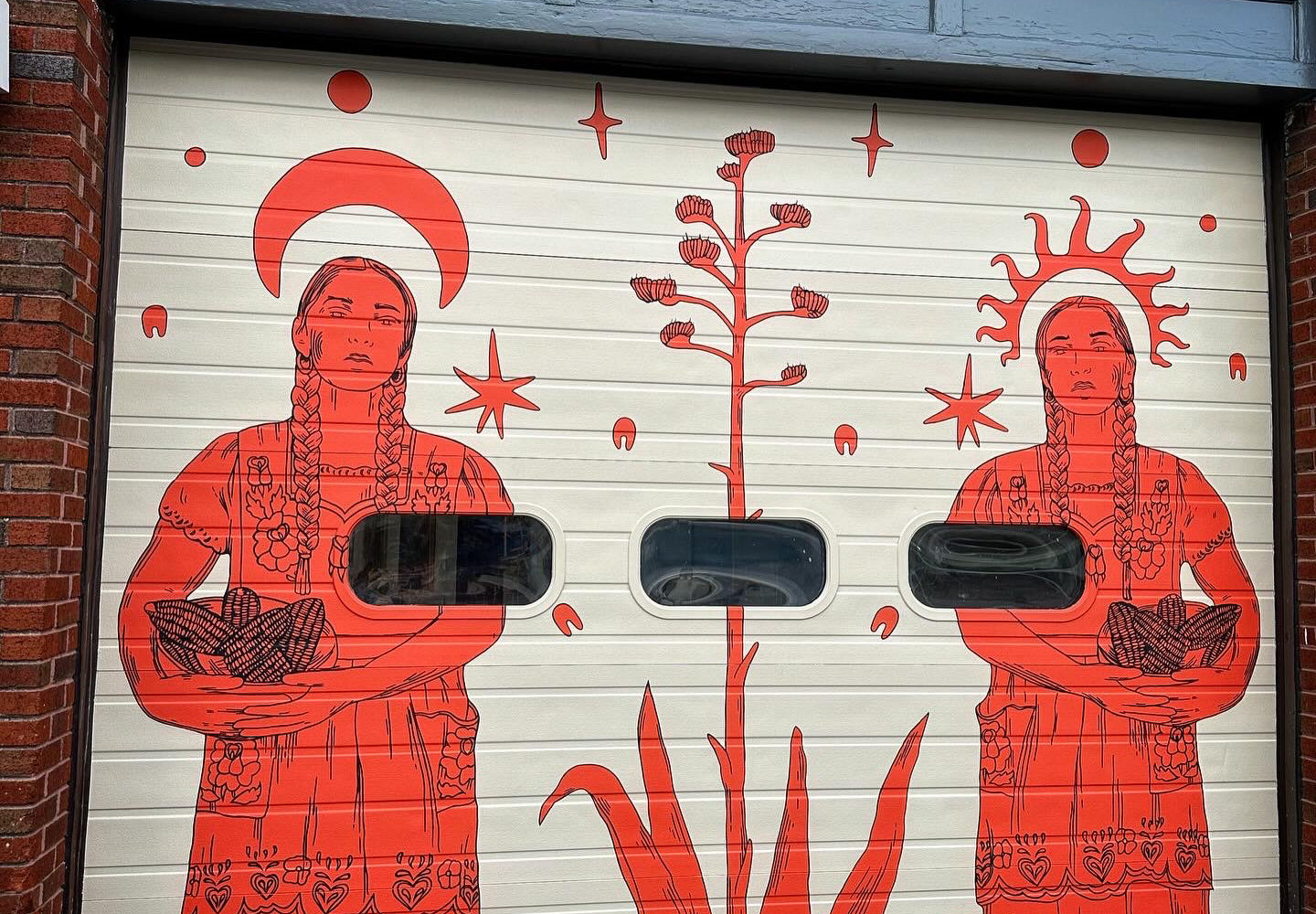Washington is closely associated with bluegrass and “old-time” music, as veteran listeners to WAMU or patrons of the Birchmere will tell you. But the city’s latest banjo export isn’t a reissue of, say, some old Seldom Scene album. It’s a 25-year-old Georgetown Day School grad named Jake Blount who’s turning into one of the instrument’s most exciting practitioners. Blount is among this year’s recipients of the prestigious Steve Martin Banjo Prize—the first Black man to earn that honor. (The comedy superstar, himself an accomplished banjo player, created the award in 2010.)
Now living in Providence, Blount released his debut album, Spider Tales, earlier this year. It’s an exploration of Black roots music—a mixture of bluegrass, old-time music, and other genres that aren’t always thought of as having had African American practitioners. “The record industry is largely responsible for that history being obscured,” he says. “I would like to see people of all races going back to listen to that music and thinking about what it means for us now. It can tell us a whole lot about where we come from.”
Blount fell in love with the banjo in an Ethiopian restaurant on U Street. One evening ten years ago, while on his way to a concert at the 9:30 Club, he happened to walk in and encountered an old-time music group performing as part of an Americana festival. One of the musicians was playing clawhammer banjo, a distinctive style that involves plucking with curled fingers. The musician explained that the technique came from African American musical traditions, and Blount was intrigued enough to later do some research. “As I came to a greater awareness of the role it had played in my ancestors’ lives and culture,” he says, “my own desire grew to learn to play it.”
That impulse has paid off; now Blount has joined some of his instrument’s most elite players in being awarded the Martin Prize. Upon opening the e-mail that informed him he had won, “I literally gasped and put my hand over my face,” he says. “People who have won the award were [some of] my biggest inspirations in my early days of playing. It is exciting to know the music I’m trying to spread is starting to gain recognition on that level. For me, it’s always been about this music and story and giving these people the credit that they should’ve gotten while they were alive.”














